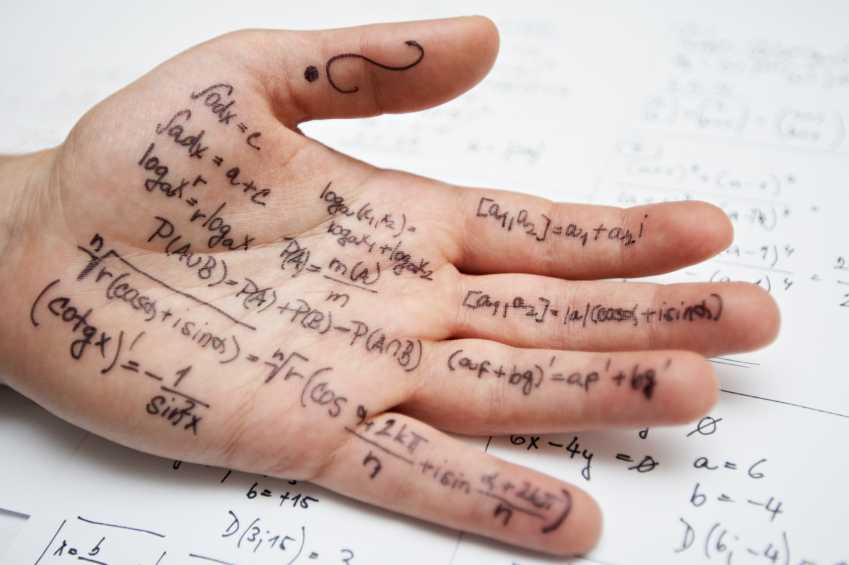Academic dishonesty, often simply referred to as cheating by UC San Diego, encompasses academically prohibited practices such as cheating, plagiarism, fabrication, collusion, academic misconduct, conspiracy, and misrepresentation. It is, unfortunately, a mainstay in academic life, and UCSD is no exception. In a recent survey by the UCSD Guardian, 99 percent of undergraduate students said that they had seen or had firsthand knowledge of students committing multiple kinds of academic dishonesty.
Academic research on the number of undergraduate students that self-report cheating hovers between 60 and 80 percent depending on the study. Yet, some professors still introduce policies in their classrooms that make it easier for students to cheat undetected. These policies harm the students who do not cheat, including honest students that go on to careers and postgraduate education such as graduate school, law school, and medical school among others, where GPA matters. Professors who choose to forgo generally accepted practices that stymie academic integrity violations should change their practices. A sense of trust is not enough.
Some studies, such as a study done by Fordham University, suggest that students who cheat have significantly higher GPAs. This seems like an unsurprising benefit of being given the correct answers, not having to do the proper work and therefore having time for other things, etc. Overall, if cheaters do have higher GPAs, the negative impact on postgraduate admissions, students’ confidence in their own abilities, the trust and support of the institution, and other GPA-related opportunities is deeply troubling.
Alternatively, some people may argue that if cheaters do not actually have higher GPAs, or if most students in their classes do not pursue a future where their GPAs matter, then academically dishonest behavior doesn’t harm other students. This perspective fails to recognize the effort of honest students and the power of the GPA to create opportunities. Regardless of the impact on GPA, the possibility that some students might get a leg up through academic integrity violations should be enough to halt overly cheater-friendly exam and class structures. Additionally, for those students who are pursuing further education, a few GPA points can matter greatly, especially now that postgraduate education has become the new norm.
Academic dishonesty in universities does not occur on a small scale. However, last year at UCSD only about 2.67 percent of undergraduates were accused of academic dishonesty. According to a U.K. study’s background research, these numbers are on par with the average 2 percent accusation rate of many other universities. On the other hand, studies such as those done by Professor Donald McCabe suggests that about 66 percent of undergraduates violate academic integrity principles. At UCSD, this would mean that 19,058 undergraduates in 2017-2018 likely violated campus’ academic integrity policy.
Human nature may partially explain why individuals cheat and sheds light on ways UCSD professors inadvertently make cheating easier. Numerous studies, such as a 2009 study in the Journal of Business Ethics, show that people are more likely to lie or act dishonestly if they do not think they will get caught. Hence, professors who choose to look find that academic integrity violations are unlikely to be revealed to them and even more likely occur in circumstances where professors have the least likelihood of finding out. For example, in our Guardian survey, nearly 50 percent said they’d seen other students asking to work or working together on, exams and other assignments that were supposed to be done independently.
If a UCSD professor has a loose policy with how they monitor integrity, they may be hoping to create a class culture of academic morality and honesty by trusting their students. However, studies such as a 2017 study from the academic Journal Theory into Practice have cast doubt on the success of this honor code policy over other methods. According to this study, the perception that one’s peers are cheating is a stronger predictor of cheating than the presence of an honor code. Hence, a policy that assumes students will do the right thing makes it easier for students to avoid detection, such as an essay not checked on Turnitin. This, in turn, encourages cheating. While the verdict remains unclear about what actually deters academic dishonesty, professors should err on the side of caution.
Obviously, however, cheating results from a complex concoction of culture, success, opportunity, and expectations among other factors. It is unlikely that academic dishonesty will ever be completely eradicated. Does this mean that there’s no point in professors putting in extra effort to halt policies that easily invite academically dishonest behavior? Absolutely not. Take an issue like systemic poverty. Systemic poverty, like academic dishonesty, will likely never be completely eradicated. However, it would be deeply concerning to say that efforts to reduce the effects of either are not worthwhile to the populations these issues affect.
Additionally, psychological research shows that most people act dishonestly under fortuitous circumstances. People don’t normally cheat because they are bad people who will lie and cheat under any and all circumstances. Hence, while some people will always try to game the system due to differences in morality, culture, expectations, risk, biology, and other unclear factors, professors can at least make it more difficult for this to take place. This would not only benefit those who are honest but also help keep students suffering from excess stress, responsibility, and other factors that seem to increase academic dishonesty from committing an integrity violation in the first place.
Professors should do more to reduce their obvious invitations of academic dishonesty, such as not having closed-note take-home exams, actually enforcing exam start and end times, using Turnitin, and changing their homework policies. Instead of merely trusting students to “do the right thing,” professors who have extreme trust in their students with regard to such policies should take a second look. While it is disheartening that students act dishonestly, professors ought to remember that academic dishonesty doesn’t just hurt those who commit it and that at the end of the day, the pledge, and its promise to students, is only as real as they make it.









Francisco Franco • Oct 16, 2024 at 2:58 pm
“Professors should do more to reduce their obvious invitations of academic dishonesty, such as not having closed-note take-home exams.” I had one of these for one of my classes, needless to say, the median score was around 95% even though the test was fairly difficult. This brings up situations like those mentioned by Ricardo Court that encourage otherwise honest students to cheat to avoid being hurt by a higher curve and “level the playing field.”
Francisco Franco • Oct 16, 2024 at 2:55 pm
“Academic dishonesty in universities does not occur on a small scale. However, last year at UCSD only about 2.67 percent of undergraduates were accused of academic dishonesty.” One of my friends was accused of academic dishonesty last year (2023) during the winter quarter for suspicion of AI to do a coding assignment. He was stressed since he had never used AI for the project and fortunately ended up having it dropped after he was able to explain his code and thought process to his instructor.
Ricardo Court, Dean for Academic Integrity, Northwestern University • May 14, 2019 at 1:00 pm
This is an interesting and valuable perspective. I hope that I can suggest an area for further work. The GPA is not the only problem with cheating. GPA is a proxy, but only an incomplete one, for the academic work done in a class. If there is a perception that cheating is common, even otherwise honest people can be moved to cheat if only to “level the playing field”. A critical mass of Academic Integrity violations and dishonest behavior will spread through a group of people, no matter how honest they would otherwise act in other contexts. Unfortunately, this cheating has a caustic effect on learning, knowledge, and skills, those things for which grades are but a pale proxy. Learning, knowledge, and skills are the things that you are in class to acquire, and for which much treasure and sweat are spent. These are the things that your cheating classmates are stealing from you, and that is a lot more than grades.
Jacob • May 2, 2019 at 10:08 am
Another amazing article uwu.